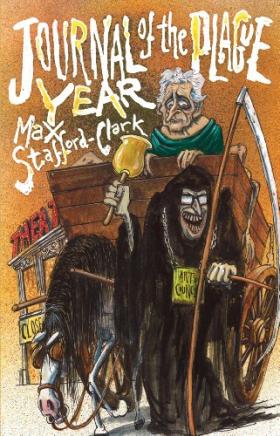Published by Nick Hern Books Review by Lesley Finlay
When the Arts Council announced it was cutting grants in 2011, I remember being struck by the seemingly arbitrary nature of some of the decisions. Ink Pellet recorded at the time that an astonishing 206 arts delivery organisations had lost their total budget with other ‘snips, trims and slashes’ being taken without rhyme nor reason – long-established theatre companies lost part of their budgets while newer ones were quids in. We wrote at the time: …the impact on employment, the creative industries and enriching education may be large…’ And so it has come to pass – artists, actors and other creatives have had to ‘make do and mend’ as our headline said; with many deciding to cut and run out of the industry.
The impact, according to Max Stafford-Clark in his revealing new book Journal of the Plague Year, means small theatre companies can no longer spend time developing new plays, they are restricted in the number of weeks they can tour, and the focus is on ‘income generation’ rather than art generation.
One wonders if this period might go down in history as Dark Ages – The Sequel. Stafford-Clark tells the story of the impact of this cut on Out of Joint, the celebrated touring company he founded in 1993. Our engaging ‘host’ takes us on a journey from the day the news broke, covering his correspondence with his Arts Council England ‘Relationship Manager’ (to conceal his identity dubbed Frank – who was anything but) with a little autobiographical spice thrown in.
One senses from the start that the battle is akin to Don Quixote tilting at windmills. Every well-reasoned blow falls on deaf or corporate ears; Out of Joint must increase their ‘income streams’, re-write the business plan and basically not ask for any more cash.
Stafford-Clark’s efforts to deal with the cuts make an intriguing insight to the financial side of the theatre industry, leaving one wondering why anyone does it. But herein lies the book’s strengths – the author is in turns frustrated and resigned, sardonic yet ultimately optimistic. Read it and weep.



